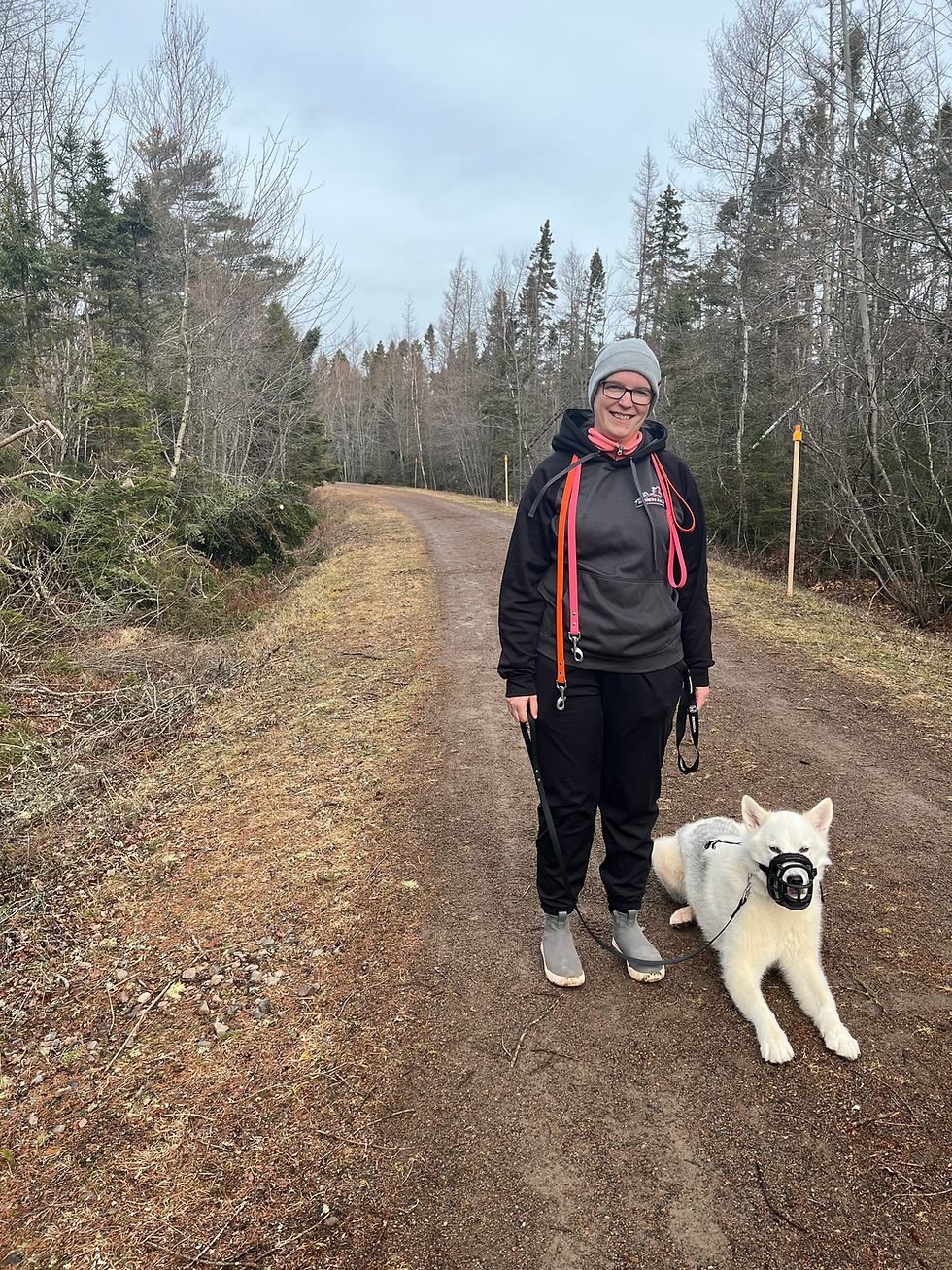
As I sit here to write this blog, one that’s near and dear to my heart, I feel extremely lucky that we adopted a dog who would challenge us beyond our wildest dreams. I believe that Snow was meant for us, in some twisted way. My hope for this blog is to open a conversation about muzzles and to help diminish the stigma that surrounds them.
I’d like to talk about Snow and how we came to the decision of utilizing a muzzle and how we chose which muzzle was correct for him. I’ll also touch on some different muzzles, and all the good, bad and ugly about them in another blog.
We adopted Snow when he was 2.5 years old, and we were told that “he just doesn’t like other dogs”. As first time dog owners, we were extremely naive to what that could actually mean. Now, mind you, we adopted Max and Snow at the beginning of COVID-19, so Snow not liking other dogs wasn’t that big of a deal but we still had to exercise them. The boys were overweight and we were trying not to pack on the COVID fifty so off we went!
One of our very first walks, we were walking by this house who had a dog on a tie out. This little dog barked and ran to the end of its tie out, which evidently was literally inches away from the sidewalk. This was the very first time I saw Snow show ANY sign of reactivity or aggression. His eyes were locked onto this little dog, and it took every fiber of my being to be able to drag him away. From that day forward, I was incredibly nervous to take Snow for a walk. I had a thousand thoughts and questions running through my mind.
What if we see a dog? What if that dog approaches us? What if there’s an off-leash dog? What if Snow bites? How do I stop a dog fight? What in the hell should I do?
Luckily, we signed up for training shortly after adopting them and I got schooled in all things dog. After sending a video of Snow to our trainer, letting her see how Snow reacts to another dog, she very happily said “that’s not true aggression, he’s very reactive”. I sighed so hard, out of relief, I’m sure you could hear me all the way in the mainland. Our trainer gave us things to do to help Snow overcome his reactivity, showed us how to muzzle train him, and gave us many tips on how to keep progressing in training.
Which we did…. Except the muzzle. I had a huge mental block over using one. He’s not dangerous, he’s just reactive. He doesn’t have a bite history. He can’t protect himself if another dog tries to fight him. I just had so many thoughts about what people will think, how people will react to seeing him in a muzzle and I didn’t want to deal with them staring and asking questions.
We opted out of the muzzle and then quickly opted into the muzzle after Snow decided to lunge at a dog while he was out for a pee and ended up breaking his slip collar. We were very lucky that he did not bite the dog, but he definitely terrified it and that was enough for us. We started muzzle training right away.
To our surprise, he took to it quite well. It helped that we used his daily meals to train with and he’s an extremely hungry husky! It took us a while to figure out which muzzle and size works best for him, but it was fun exploring all the different options.
Snow in a muzzle is a different dog than Snow out of a muzzle. You wouldn’t think that a muzzle could change a dog, but it does in all the right ways. He’s more confident, less reactive and LOVES his muzzle. You would think that I’m holding a nice, big juicy steak when I grab his muzzle. I often wonder why a muzzle has changed him so much and all I can come up with is that because he can’t use his mouth, he has to use his brain.
Snow being in a muzzle when outside of our house means that we can relax and enjoy walks with him. It means we can comfortably let him off leash (with a bombproof recall), knowing he can’t hurt another dog. It meant we could get a puppy, and slowly introduce them in a safe manner. It has opened a whole new world for him, and for us! I’m no longer nervous or fearful of what other people think. In fact, most people will give us extra space or ignore us altogether.
This doesn’t mean that Snow loves every dog he sees, or that he isn’t reactive at all. We all have bad days, including our dogs. Not every dog needs to meet or love every dog it sees. The bad days seem to get further and further apart until you don’t even remember the last time he had a bad day.
Muzzles are essential for some dogs, but every dog should be muzzle trained. You never know when you’re going to be in a situation where your dog may need one. It’s always better to be prepared and ready.
I hope Snow’s story inspires a conversation, or shows whoever reads this that it’s okay to have a difficult dog. Difficult dogs lead to incredible journeys. Take your time, enjoy the process and remember that it's always “Progress, not Perfection”.
Comments